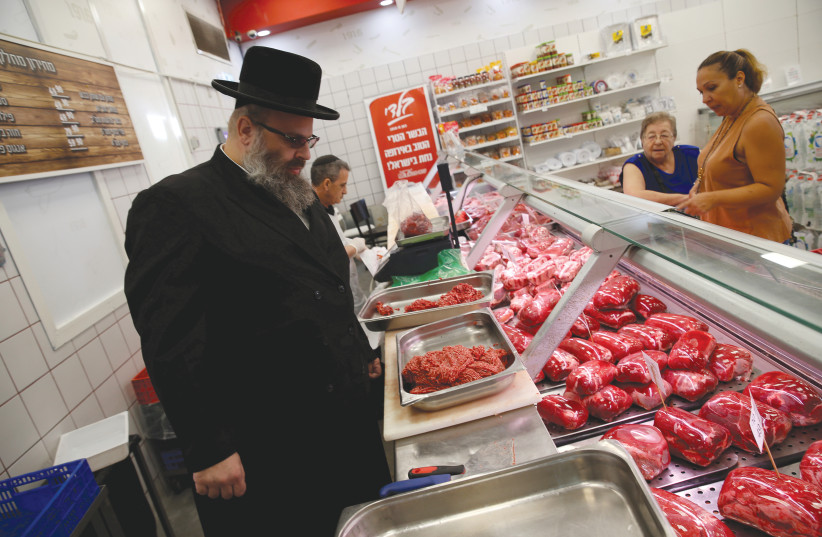Israelis ate 196,000 tons of meat in 2022, meaning on average, each Israeli eat nearly 21 kilograms of meat, a 6% increase compared to the previous year, according to new data published by the Agriculture Minister on Sunday.
The data also showed that the consumption of all types of meat during the week of Independence Day rises by 50% compared to the average week and the consumption of specific meats for grilling increases threefold during that week.
Israelis eat a lot more meat on average than their counterparts in OECD countries, who only eat 14.2 kg of meat per person per year. Israelis do eat less than some other countries, including Argentina, where the average person eats 36.9 kg of meat; the US, where the average person eats 25.3 kg, and Brazil, where the average person eats 24.6 kg.
The meat consumed in Israel is split into three main categories by the Agriculture Ministry: fresh meat slaughtered in Israel (39%), imported refrigerated meat (15%) and imported frozen meat (46%). 26% of meat consumed in Israel comes from animals brought on live transports from abroad and slaughtered in Israel.
According to data from StoreNext, on average, a kilogram of meat in Israel cost NIS 42.7 in 2022. Front quarter cuts cost on average NIS 73.9.

Agriculture Ministry encourages purchasing refrigerated or frozen meat
The Agriculture Ministry noted that it encourages people to consume imported refrigerated or frozen meat due to the difficulties of transporting livestock and a desire to minimize the harm to animals. The customs rate for such meat has been lowered and the shelf life of refrigerated meat has been extended to up to 85 days from the moment of slaughter in order to allow the import of fresh meat from more countries.
The ministry additionally noted that it has invested about NIS 4 million in research and development for the development of alternate protein options, including ones based on quinoa and peas, in recent years.
The ministry stressed that consumers should only purchase meat from authorized stores and should ensure the meat is in its original packaging and closed. The ministry warned that some businesses sell thawed frozen meat as if it is fresh meat and that this is illegal.
Additionally, the ministry pointed out that claims of meat being "aged" is not a reason for consumers to pay more for it as almost all meat is aged in order to make it edible.
